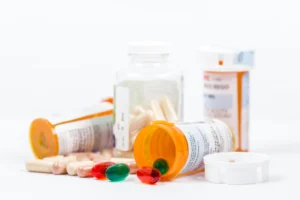Hospital Synopsis Safe Medication Distribution on Long Island
Problem: Unacceptably high rates of drug addiction on Long Island.
Response: Long Island Council on Alcohol and Drug Dependency (LICADD) and PULSE Patient Safety Advisory Council are working to reduce the drug problem on Long Island through education about medication use and drug disposal.
According to the official Nassau County, NY website, 2015 (the latest year for which statistics are available) saw the highest incidence of heroin deaths. Between 2004 and 2016, 1544 people in Nassau (and many more on Long Island as a whole) lost their lives to overdoses of illegal opioids or prescribed narcotics. In 2007 10,418 people were admitted to rehab facilities. Although there are no known statistics as to what this is costing taxpayers for emergency medical response, we can be certain that the use of heroin and other narcotics is contributing to health care costs, as well as affecting the lives and livelihoods of our local communities.
Observations submitted by intern: Over the past two weeks I have been working at a Long Island hospital observing patient discharges upon their departure from the hospital. My focus was to observe the dialogue between the patient and doctor during the discharge process. While observing the discharge, I was listening for questions by the medical professional regarding the types of medications that were being prescribed, the disposal and storage of these medications, and the potential addictions that can occur from the abuse of painkillers and narcotics. My observations have led me to the conclusion that neither possible methods of storage and disposal, nor the potential addictions of painkillers, are being addressed during the discharge process.
After the discharge discussion was complete, I then asked the patients' permission to conduct an interview regarding their comprehension of the discharge process. During the patient reflection I asked several questions such as:
- What new medications, if any, have you been prescribed?
- Of those medications, which are painkillers?
- How will you store the medications?
- How will you dispose of the medications?
These interviews have been very informative and have revealed the average patient’s lack of knowledge about how to store and dispose of old medications, especially painkillers. One patient conveyed that she has had all of her pain medications stolen from her at a recent party in her home. She added that in the future she will store her medications in a less obvious location. None of the patients had any knowledge about proper disposal of old medications that they no longer take or need. If the medications are not properly disposed of, the risk of potential abuse becomes much greater.
One patient firmly stated that all of the questions I asked during our interview should always be asked by the physician during the discharge process. The addition of these questions to the discharge process will give the patient more knowledge and assurance when leaving the hospital.
Recommendations: Every nurse, doctor and pharmacist should be required to discuss the following items with anyone to whom they are recommending narcotics.
- Does the patient understand the medications being prescribed and that they can be addicting?
- Does the patient understand that the narcotic (or other addictive) medication) shouldn’t be easily accessible to others in the home?
- Does the patient understand appropriate disposal of medication?
Additional Focus Groups:
- To develop a “best practice” and patient-centered dialogue,
- To learn what patients are hearing and understanding when discussing medications with clinicians or pharmacists.

